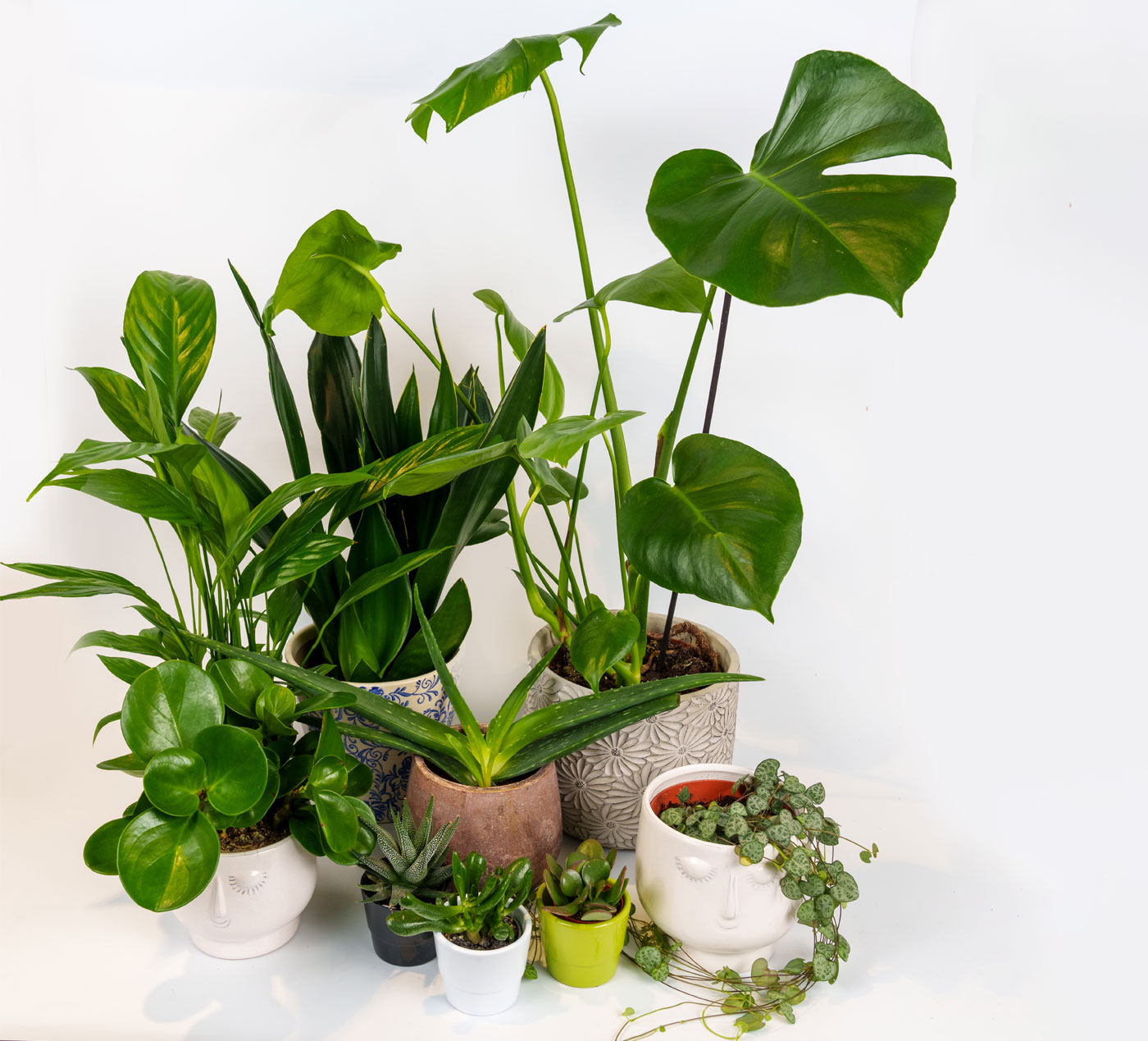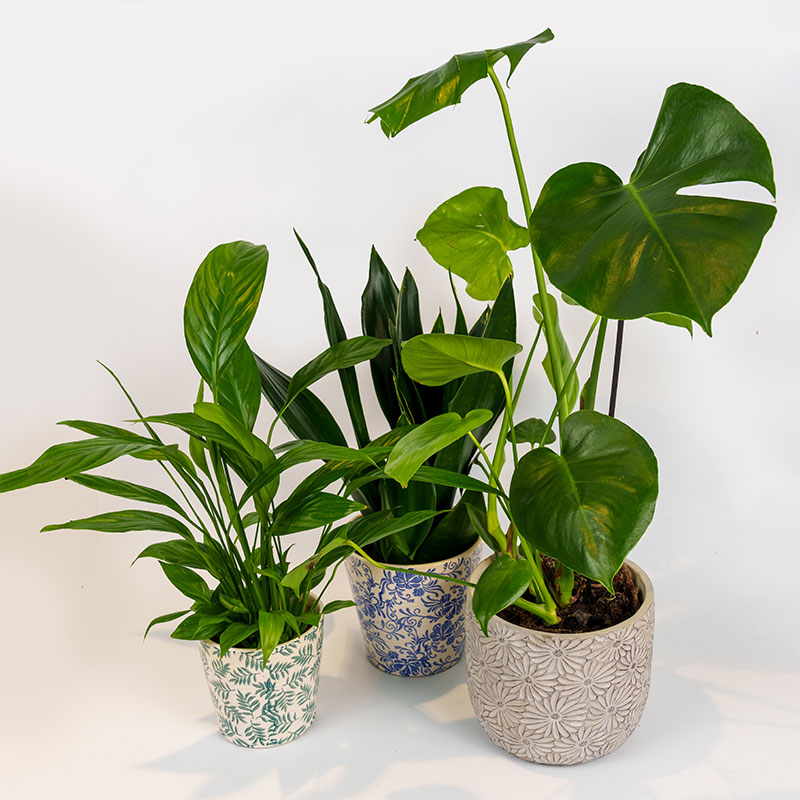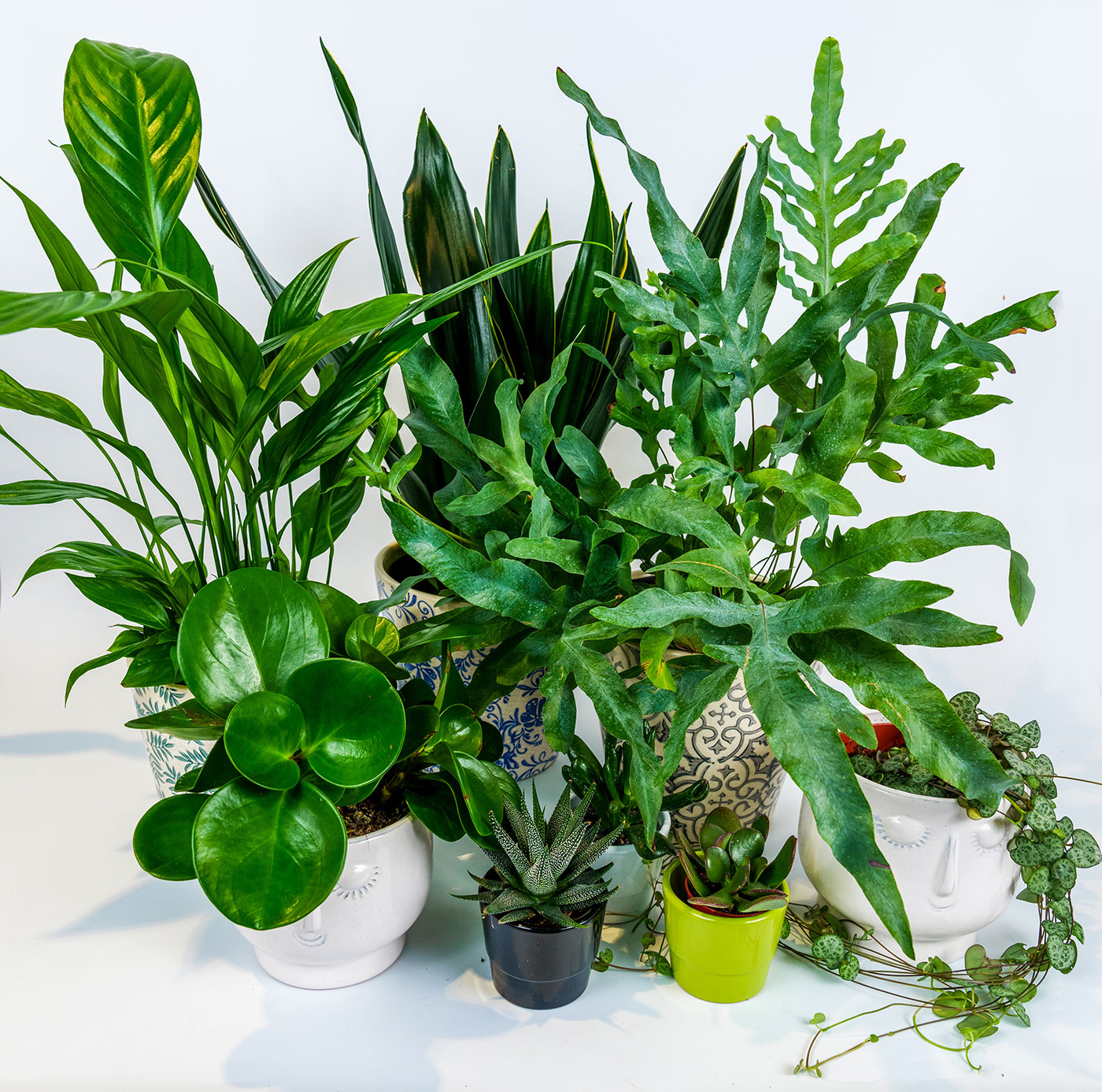Call the shop for last minute Christmas Orders
The shop will be open until Mid Day Christmas Eve, please call the shop for last minute orders.
The shop will be closed from 12pm Dec 24th until Monday 5th January 2026.
Get to know your plant, you can find information specific to your plant on the internet, but here are some general care tips.
Plants need sunlight to turn into energy. The right amount is important and light conditions can vary for specific plants but most plants like bright indirect sunlight.
The best way to tell if your houseplant needs watering is to monitor the soil. Poke your finger into the soil to the first knuckle joint to see if it feels dry. Lots of plants prefer to dry out a bit before watering. Bottom watering your plants can help you with giving the perfect amount of water to your plants. Simply place your plant in its nursery pot with holes inside a bucket of water. Let her soak up water for about 10 minutes and let the excess drain off. Tadaa, a perfectly watered plant! You can sat sit on tray and water the tray.
Any sign that the plant isn't healthy is often an indicator that it is getting too much or too little water.
Most plants do not like harsh tap water. You can fill up your watering can and leave it standing for a day (24 hours) or longer before using it. This reduces harmful chemicals in your water.
Carnivorous plants must be kept wet, ideally sat in water and you must use only rain water.


During the growing season, which is from spring till the end of summer, plants need some nutrition. Use a good indoor plant feed every couple of weeks, follow the directions on your plant food.
Most plants like stable conditions away from draughts and heat sources. Dryer environments make plants dehydrate more quickly, a general humidity of 40-60% makes most plants happy, ferns like a more humid environment and succulents/cacti like a dryer one.
Remove any dead leaves, or yellowing leaves. This natural and normal process and removing then can stimulate new growth in your green friend! Use with clean sharp pruning shears. Don’t worry, your plant won’t feel a thing and is happy to get rid of it.
There is a possibility that your plant may succumb to pest or disease, check your plants regularly for these, its important to catch it early and stop it from spreading. Information about different pests, disease and treatments can be found online.
Open windows near your houseplants so they can breathe in fresh air, this will help them grow Don forget to give your plant a light dust from time to time.
When the leaves have a layer of dust on, this stops them getting as much air and sunlight as they need. Dust gently using a damp cloth or paintbrush, depending on the size of your plant.
If you have pets, be aware some houseplants are toxic to them. You should be able to find out this information with a quick bit of online research.
Don’t be scared to move your plant around until you find the place where they thrive.

We would love to hear from you.